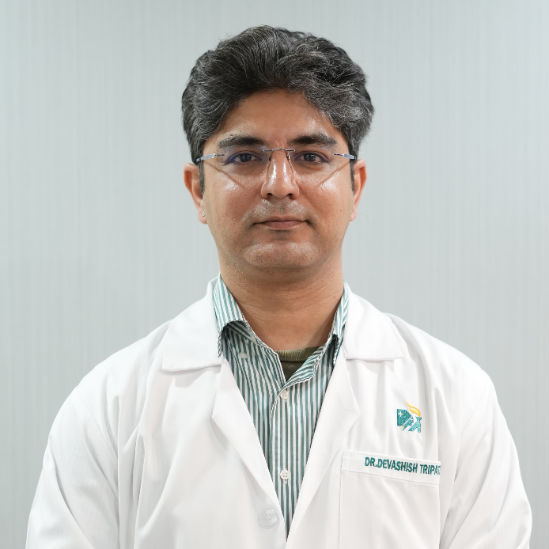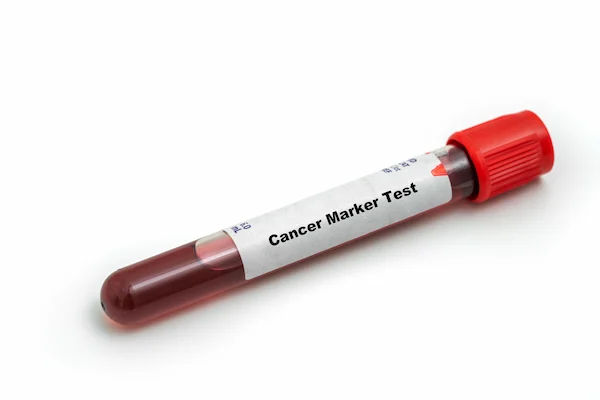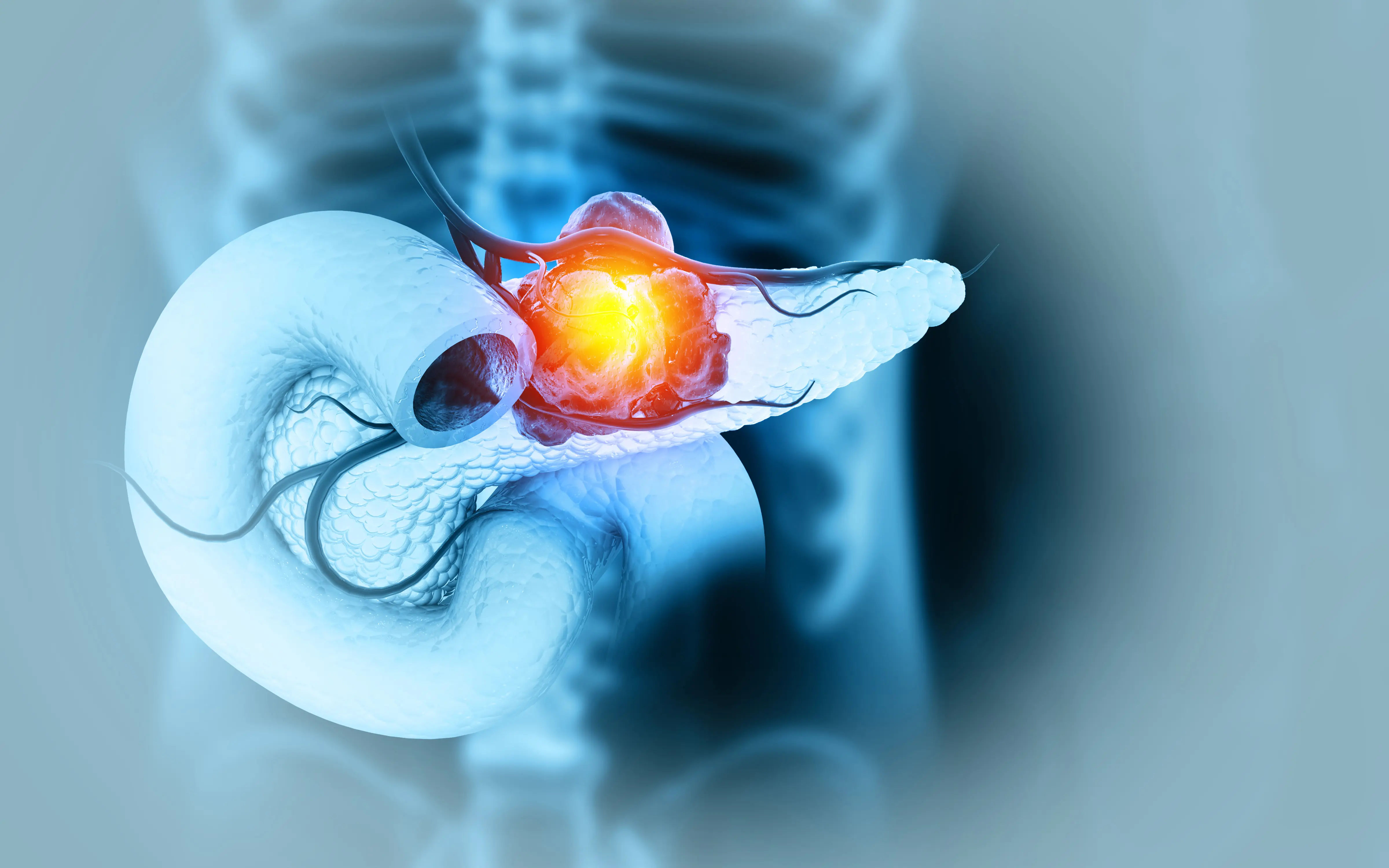CA 19-9 Blood Test for Pancreatic Cancer
Learn about the CA 19-9 blood test for pancreatic cancer, its role in diagnosis and monitoring, what the results mean, and how it helps in managing pancreatic and other digestive system cancers.


Introduction
Pancreatic cancer is a serious health condition that often goes undetected until it reaches an advanced stage. Early diagnosis is crucial for better treatment outcomes, and one of the tests doctors use to monitor pancreatic cancer is the CA 19-9 blood test. If you or a loved one has been advised to take this test, you may have questions about what it means and how it helps in diagnosis and treatment.
In this article, we’ll explain what the CA 19-9 test is, why it’s used for pancreatic cancer, what the results mean, how it fits into overall cancer care and when to consult a doctor.
Let’s break it down in simple terms.
What is the CA 19-9 Blood Test?
The CA 19-9 (Carbohydrate Antigen 19-9) test measures the level of a protein called CA 19-9 in the blood. This protein is produced by pancreatic, bile duct, and some other cancer cells. While it is not used alone to diagnose cancer, it helps doctors:
- Monitor how well treatment is working
- Check if cancer has returned after treatment
- Detect possible cancer spread (metastasis)
Consult an Oncologist for the best advice
Who Should Get This Test?
It is usually recommended in specific cases like:
- Patients with symptoms of pancreatic cancer (e.g., jaundice, abdominal pain, unexplained weight loss)
- Those already diagnosed with pancreatic cancer (to track treatment response)
- Individuals at high risk due to family history or chronic pancreatitis
Why is the CA 19-9 Test Important for Pancreatic Cancer?
Pancreatic cancer is often called a "silent killer" because symptoms appear late. The CA 19-9 test helps in:
- Monitoring Treatment – If levels drop after surgery or chemotherapy, it suggests the treatment is working.
- Detecting Recurrence – A rising CA 19-9 level may indicate cancer has returned.
- Guiding Further Tests – High levels may lead to imaging tests (CT scan, MRI) for confirmation.
However, it is not a screening test for healthy people because:
- Some non-cancerous conditions (gallstones, pancreatitis) can also raise CA 19-9.
- Not all pancreatic cancers produce CA 19-9 (about 5-10% of people lack the protein).
Understanding Your Test Results
Getting your CA 19-9 test report can feel overwhelming. Here’s how to understand what your test results may indicate:
Normal Range:
- Less than 37 U/mL is considered normal.
Higher Than Normal Levels May Indicate:
- Pancreatic cancer (most common reason)
- Other cancers (liver, stomach, colorectal, ovarian)
- Non-cancerous conditions (pancreatitis, liver disease, gallstones)
Important Note: A high CA 19-9 level does not always mean cancer. Further tests are needed for confirmation.
How is the Test Done?
The CA 19-9 test is a simple blood test:
1. A small blood sample is taken from your arm.
2. The sample is sent to a lab for analysis.
3. Results are usually available within a few days.
No special preparation is needed, but fasting may sometimes be recommended.
What If My CA 19-9 Level is High?
Don’t panic; high levels do not always mean cancer. Your doctor may recommend:
- Imaging tests (CT scan, MRI, ultrasound)
- Biopsy (tissue sample testing)
- Repeat CA 19-9 test (to check trends over time)
If pancreatic cancer is confirmed, treatment options include:
- Surgery (if detected early)
- Chemotherapy & Radiation
- Targeted Therapy
Get Your Health Assessed
Lifestyle Tips for Pancreatic Health
While the CA 19-9 test helps monitor cancer, maintaining a healthy lifestyle can reduce risk:
- Eat a Balanced Diet – Include fruits, vegetables, whole grains, and lean proteins.
- Limit Alcohol & Smoking – Both increase pancreatic cancer risk.
- Exercise Regularly – Helps maintain a healthy weight.
- Manage Chronic Conditions – Diabetes and pancreatitis may increase risk.
When to See a Doctor?
Consult a doctor if you experience:
- Persistent abdominal pain
- Unexplained weight loss
- Jaundice (yellow skin/eyes)
- Loss of appetite or nausea
If you’ve been advised a CA 19-9 test, you can easily book a blood test or consult a specialist through Apollo 24|7. Early detection and expert care make a big difference in managing pancreatic cancer.
Final Thoughts
The CA 19-9 test is a helpful tool in managing pancreatic cancer, but it is not a standalone diagnostic test. If you or someone you know is at risk, staying informed and seeking timely medical advice is key.
Consult an Oncologist for the best advice
Get Your Health Assessed
₹1650(₹4125)60% off
Consult an Oncologist for the best advice

Dr. Prof. Vijay Agarwal
Medical Oncologist
20 Years • MBBS, MD, MRCP (UK), PhD (UK), CCT (UK) Medical Oncology
Bengaluru
Apollo Hospitals Bannerghatta Road, Bengaluru
(200+ Patients)

Dr. Tarun Jindal
Uro Oncologist
14 Years • MS (AIIMS, New Delhi), MCh (Gold Medalist), Fellow, VUI, Henry Ford Hospital, Detroit, USA; Robotic and Laparoscopic surgeon
Kolkata
Apollo Multispeciality Hospitals , Kolkata, Kolkata
(125+ Patients)

Dr Shaikat Gupta Director Surgical Onco
Surgical Oncologist
35 Years • MBBS (University Gold Medalist), MS, FRCSEd
Kolkata
Apollo Multispeciality Hospitals , Kolkata, Kolkata
(75+ Patients)

Dr Devashish Tripathi
Radiation Specialist Oncologist
20 Years • MBBS, PLAB, MRCP (UK)- General Medicine, FRCR (Oncology), Certificate of Completion of Training (CCT)- Clinical Oncology
Delhi
Apollo Hospitals Indraprastha, Delhi

Dr. Gopal Kumar
Head, Neck and Thyroid Cancer Surgeon
15 Years • MBBS, MS , FARHNS ( Seoul, South Korea ), FGOLF ( MSKCC, New York )
Delhi
Apollo Hospitals Indraprastha, Delhi
(25+ Patients)
Consult an Oncologist for the best advice

Dr. Prof. Vijay Agarwal
Medical Oncologist
20 Years • MBBS, MD, MRCP (UK), PhD (UK), CCT (UK) Medical Oncology
Bengaluru
Apollo Hospitals Bannerghatta Road, Bengaluru
(200+ Patients)

Dr. Tarun Jindal
Uro Oncologist
14 Years • MS (AIIMS, New Delhi), MCh (Gold Medalist), Fellow, VUI, Henry Ford Hospital, Detroit, USA; Robotic and Laparoscopic surgeon
Kolkata
Apollo Multispeciality Hospitals , Kolkata, Kolkata
(125+ Patients)

Dr Shaikat Gupta Director Surgical Onco
Surgical Oncologist
35 Years • MBBS (University Gold Medalist), MS, FRCSEd
Kolkata
Apollo Multispeciality Hospitals , Kolkata, Kolkata
(75+ Patients)

Dr Devashish Tripathi
Radiation Specialist Oncologist
20 Years • MBBS, PLAB, MRCP (UK)- General Medicine, FRCR (Oncology), Certificate of Completion of Training (CCT)- Clinical Oncology
Delhi
Apollo Hospitals Indraprastha, Delhi

Dr. Gopal Kumar
Head, Neck and Thyroid Cancer Surgeon
15 Years • MBBS, MS , FARHNS ( Seoul, South Korea ), FGOLF ( MSKCC, New York )
Delhi
Apollo Hospitals Indraprastha, Delhi
(25+ Patients)



